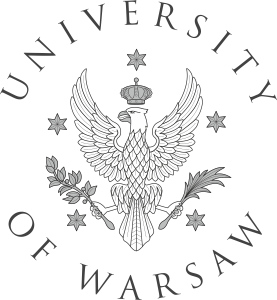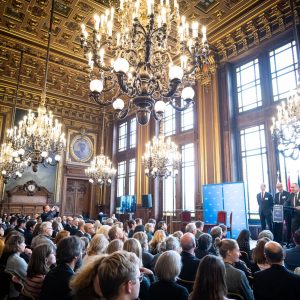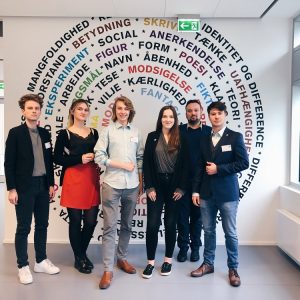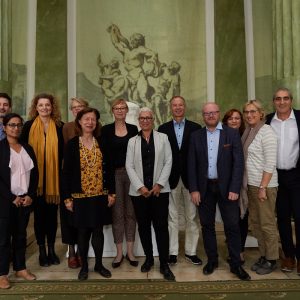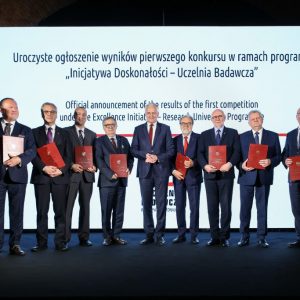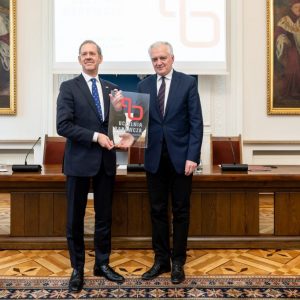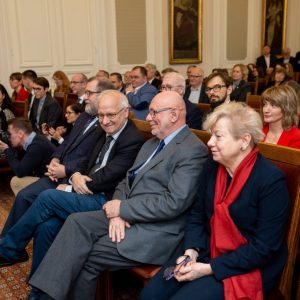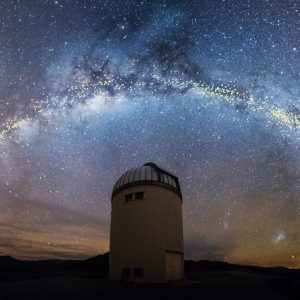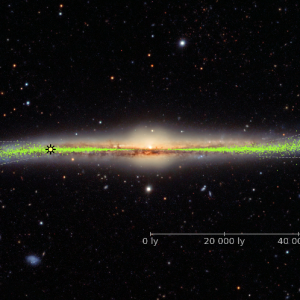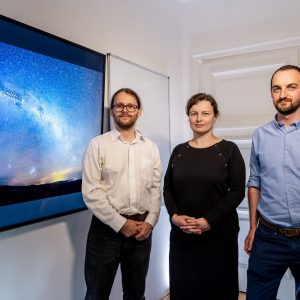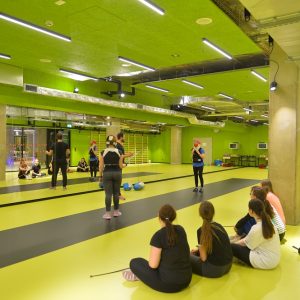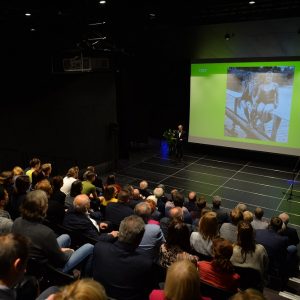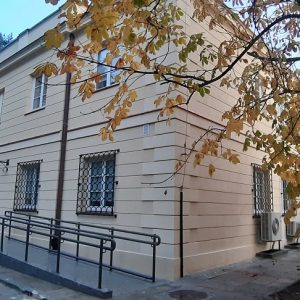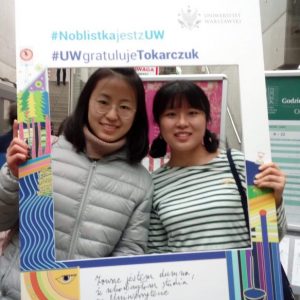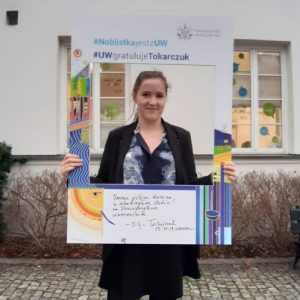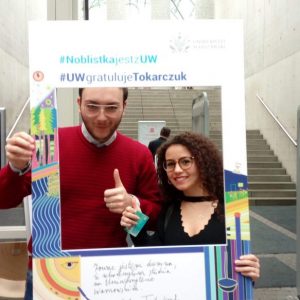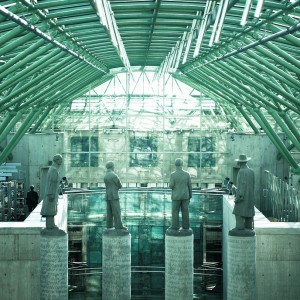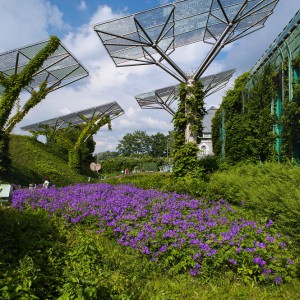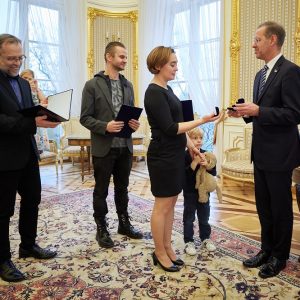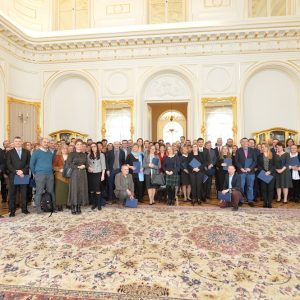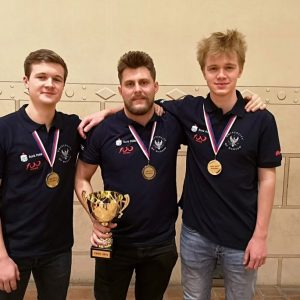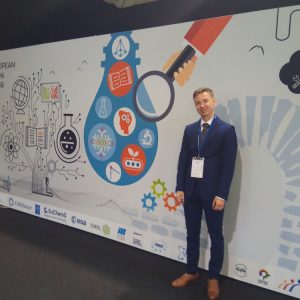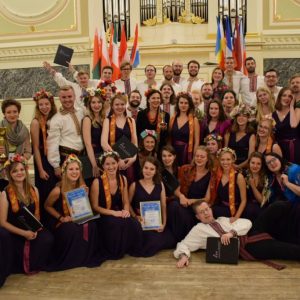Open call for candidates for rector position at the UW
30 grudnia 2019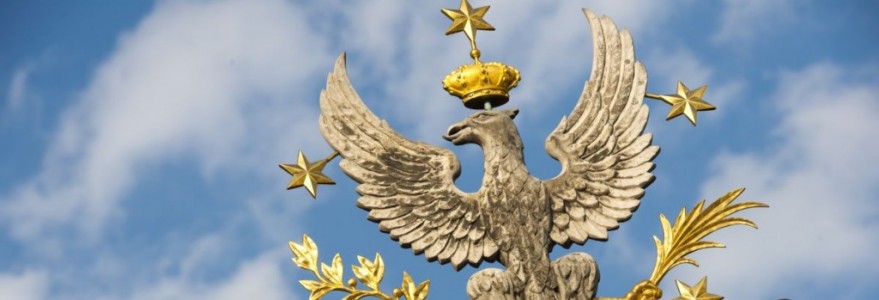
The University Council of the University of Warsaw advises the Rector and the Senate of the University of Warsaw and nominates candidates for the Rector position. To ensure transparency and good governance practices, the University Council announces an open call for candidates who are interested in the Rector position and meet the requirements. The deadline for sending applications: 31st January.
Open call for candidates for rector position at the University of Warsaw (pdf)
Applications should be submitted to the University Council by email (university.council@uw.edu.pl) and will be treated confidentially.
The deadline for applications is 31st January 2020.

More information on the University Council of the University of Warsaw
Source: www.en.uw.edu.pl
2019 at UW
19 grudnia 2019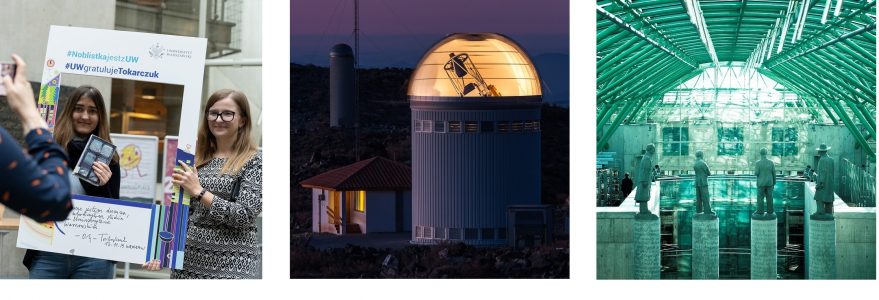
The passing year has been crucial for our university. UW kept developing its strategic initiatives, e.g. the 4EU+ Alliance, excellence initiative, and multiannual development plan. UW scientists contributed to breakthroughs, and the UW graduate won a Nobel Prize. What else happened at UW during the past year? We present 10 facts.
1. European University
The University of Warsaw is a member of 4EU+ that brings together six comprehensive, research-intensive, public universities from four regions of Europe. 4EU+ wants to strengthen the European vision of deepened cooperation and mutual enrichment by developing a new quality of cooperation in teaching, education, research and administration, leading to the creation of a truly integrated European University System.
In February 2019, the 4EU+ Alliance submitted an application in the Erasmus+ “European Universities” dedicated call. A few months later, in June, the European Commission selected 17 European University alliances, including 4EU+, which obtained funding for their projects to become the ‘European Universities’ of the future. November saw a kick-off event of the European Universities Initiative which took place in Brussels. In December, our university organised the first university-wide 4EU+ info meeting, which brought together nearly 300 participants. Many watched it online. More information >>
2. UW as a research university – an excellence initiative
The Ministry of Science and Higher Education awarded UW in the first competition in the framework of the “Excellence initiative – research university” programme. Out of 20 applications submitted in response to the call, the Ministry has selected 10 HEIs. The UW proposal was rated as the best and experts gave it the highest evaluation score. Obtaining the grant will enable our university to develop five priority research areas addressing main contemporary societal challenges. More information >>
The selected HEIs, including the University of Warsaw, will receive a state subsidy increased by 10% annually for 6 years (2020-2026).
3. A unique three-dimensional map of the Milky Way – an important discovery of UW astronomers
Astronomers from the Astronomical Observatory of the University of Warsaw constructed the most detailed 3-D map yet of the Milky Way. To create the map, they used a sample of over 2,400 Cepheids, young pulsating supergiants which brightness changes in a very regular pattern with a well-defined period ranging from hours to several dozen days. The majority of the stars have been newly identified in the photometric data collected by the Optical Gravitational Lensing Experiment (OGLE) survey. The map demonstrates that the Milky Way disk is not flat, it is warped at distances greater than 25,000 light years from the Galactic centre.
The study of UW astronomers was published in the journal Science. It was a breakthrough in astronomy which sparked off a tremendous amount of world media coverages. More information >>
4. Realised Investments of the multiannual development plan
In 2019, UW completed the realisation of its first investments funded by the multiannual development plan. Students and employees can use the sports halls situated in the University of Warsaw Library undergrounds. Also, thanks to the funding, the eastern part of the building at 4 Aleje Ujazdowskie Street was reconstructed. It will house offices of the Cooperation and Dialogue Centre, the UW new unit which aims to be a university cooperation and communication platform with the socio-economic environment.
5. Changes to the university organisation and structure
Following the new Law on Higher Education and Science, UW implemented new documents and established new organs. On 1st October 2019, the new Statute of the University of Warsaw (pdf) and Rules of Study at the University of Warsaw (pdf) entered into force. Also, the university set up four doctoral schools and appointed members to the new organ – the University Council of the University of Warsaw. What is more, UW established academic councils of the academic disciplines, the University Teaching and Learning Council. In the upcoming year, UW will announce members of the teaching and learning councils.
6. Nobel Prize for Olga Tokarczuk
Olga Tokarczuk, who graduated from the UW Faculty of Psychology, was awarded the 2018 Nobel Prize in Literature “for a narrative imagination that with encyclopedic passion represents the crossing of boundaries as a form of life.” On the occasion of Nobel prize-giving to Olga Tokarczuk, UW encouraged its students and employees to take part in an action “UW congratulates Tokarczuk” and express their congratulations to the outstanding writer. The UW community members could take photos using a specially prepared photo frame which referred to Tokarczuk’s works and included a quotation of the writer’s letter to Prof. Marcin Pałys, UW rector. More information >>
7. UW for the climate
On 1st October, UW rector set up an advisory board “UW for the climate”. It comprises UW researchers, employees and representatives of students and doctoral candidates. The main aim of the group is to conduct and coordinate various UW activities preventing from the climate crisis. In November, the Senate of the University of Warsaw formulated an official position of the university on the crisis. Previously, the faculties of Psychology, Political Sciences and International Studies, Economics and Biology have adopted declarations on climate change.
8. 20 years of the University of Warsaw Library
December saw the 20th anniversary of the University of Warsaw Library (BUW) in Powiśle district. The building is known for its unique architecture and roof gardens. On the occasion of 20 years of BUW in Powile, the library prepared a series of events, e.g. dictation, presentation of the first edition of the “Polish Language Dictionary” by S.B. Linde, a meeting of employees, readers and friends of the University of Warsaw Library, and the opening of the exhibition “Reminiscences II” which commemorates important events and visits of famous people to the Library.
9. Awards for employees
In November, Prof. Paweł Stępień, Prof. Agata Dziewulska and Prof. Andrzej Dragan, representatives of humanities, social sciences, as well as exact and natural sciences, received didactic awards given by the UW rector. The selected employees have great achievements in teaching and introducing innovative education methods. In March, 134 employees, who have achieved outstanding results in research or teaching, were awarded. These employees will be receiving an increased salary. In 2015, rector of the University of Warsaw established a special fund supporting those scholars who contribute to the development of the university.
10. Students’ success
Not only UW scientists but also UW students have significant achievements. Many of them have won awards and distinctions in programming contests, scientific, cultural and sports competitions. UW can be proud of having winners of the ACM International Collegiate Programming Contest (Central Europe Regional Contest), a laureate of the EU Contest for Young Scientists, students singing in the UW choir which won many awards, and winners of the general classification of the Polish Academic Championships.
Seminar CeNT 20.12.2019
17 grudnia 2019The Centre of New Technologies invites to a seminar by
Prof. Michael Feig
Michigan State University, USA
Title: Cellular crowding near membranes: Implications for biomolecular diffusion and clustering
Date: 20 December (Friday) 2019 at 12 p.m.
Venue: Centre of New Technologies, Banacha 2C,
Lecture Hall 0142 (ground floor)
Host: Prof. Joanna Trylska
The interior of biological cells is highly crowded with very high macromolecular concentrations that impact biomolecular stability, diffusion, and solubility. While there is some understanding of these effects inside the cytoplasm, very little is known how the presence of membrane surfaces modulates crowding effects. Biological membranes represent the outer boundary of cells, but they are also present inside cells to contain organelles and in the endoplasmic reticulum or Golgi apparatus. To gain insights into how a crowded environment may interact with membrane surfaces, results from computer simulations of concentrated protein solutions near phospholipid bilayers over microsecond time scales are presented1. The main insight is that the presence of the membrane appears to create a protein depletion zone at the membrane surface that leads to increased clustering and slower diffusion away from the membrane but allows proteins that enter this zone to overcome the slow diffusion that is otherwise encountered in the crowded bulk environment. In addition, proteins that do interact with the membrane surface appear to induce curvature. The finding is similar to crowding-induced membrane bending reported previously but without requiring specific membrane-interacting protein domains. The results are further interpreted via coarse-grained models to access larger spatial and temporal scales and results with pure lipid bilayers are compared with simulations where an integral membrane protein was embedded into the bilayer.
1G. Nawrocki, W. Im, Y. Sugita, M. Feig: Clustering and Dynamics of Crowded Proteins near Membranes and Their Influence on Membrane Bending. PNAS (2019), 116, 24562-24567
Christmas with the Psychological Counselling Centre
Psychologists from the UW Psychological Counselling Centre (CPP) will be available for UW students and employees also around Christmas time. Watch a video with Dr. Szymon Chrząstowski encouraging those who do not feel comfortable in this period or face some difficult situations, to come for short conversations.
Christmas is a time of joy and happiness. However, some people feel stressed while thinking of Christmas.
“For many people Christmas is a great opportunity to relax, meet loved ones and finally have some joy. Some people, however, are very nervous about the holidays, they are nervous about meeting their loved ones, they fear how these holidays will go,” says Dr. Szymon Chrząstowski, head of CPP.
Being on an international exchange programme may be a great experience, but it is also a challenge. The new environment, new relationships, and language barriers can be overwhelming and not easy to handle. If you experience an unpleasant situation or simply feel stressed because you can not spend this time with your family, contact CPP to receive professional help.
Those who stay in Warsaw over a Christmas holiday break and would like to talk to a psychologist can visit the centre.
Walk-in clinics:
23rd December at 12:00-15:00
30th December at 12:00-13:00
2nd January at 17:00-18:00
3rd January at 12:00-13:00
It is also possible to arrange an online appointment via Skype.
The Psychological Counselling Centre of the University of Warsaw provides confidential short-term counselling, crisis intervention services and evaluation of needs for academic support for all English-speaking students of the University of Warsaw. More information >>
Source: www.en.uw.edu.pl
Job offer for a PhD student position
11 grudnia 2019Position of PhD student in the project entitled „Innovative Nanostructured Functional Materials by Combinatorial Methods of Directed Self-Assembly of Block Copolymers”. Project funded under the First Team program by the Foundation for Polish Science (FNP). Project leader: Dr. Paweł W. Majewski. Deadline for applications: 24 December 2019. For more info see >> pdf
UW congratulates Olga Tokarczuk
09 grudnia 2019On 9th and 10th December, at the University of Warsaw, there will be an action called “UW congratulates Olga Tokarczuk”. Members of the UW academic community will have an opportunity to congratulate Nobel Prize laureate. The author of “The Books of Jacob” (Księgi Jakubowe) or “Flights” (Bieguni) graduated from the UW Faculty of Psychology.
On 10th December, during the Nobel Prize award ceremony at Konserthuset Stockholm, Olga Torakczuk will obtain the award. Polish writer is recognised as one of the most distinguished representatives of modern literature in Poland and the world. She holds many Polish and international awards. In 2018, she won the Man Booker International Prize for her novel “Flights” (Bieguni). This book also won the Nike Award, Poland’s top literary prize, in 2008. In 2015, Olga Tokarczuk received another Nike Award for the impressive historical novel “The Books of Jacob” (Księgi Jakubowe).
In 1987, Olga Tokarczuk graduated from the University of Warsaw Faculty of Psychology. She is the 15th woman to receive the literature prize and the 6th from Poland. Among the laureates are also other two graduates of UW, namely Henryk Sienkiewicz, and Czesław Miłosz.
On the occasion of Nobel prize-giving to Olga Tokarczuk by the Nobel Prize Committee, UW undertakes the action “UW congratulates Tokarczuk”. It aims to encourage students and employees of the university to express their congratulations to the outstanding writer. One can do this by taking a photo using a specially prepared photo frame. The frame refers to Tokarczuk’s works and includes a quotation of the writer’s letter to Prof. Marcin Pałys, UW rector.
Each person taking part in this activity is invited to share their photos on social media using hashtags UWcongratulatesTokarczuk and NobelPrizeLaureateisfromUW. The UW Press Office organises the action.
Photos can be taken on 9th December at 9:00-10:00 on the UW main campus near the Old Library building and the main gate. On 10th December at 11:00-13:00 in front of the University of Warsaw Library entrance.
The Swedish Academy had decided to award the 2018 Nobel Prize in Literature to Olga Tokarczuk “for a narrative imagination that with encyclopedic passion represents the crossing of boundaries as a form of life.” The Nobel Prize in Literature for 2019 went to the Austrian writer, Peter Handke.
The Nobel Prize award ceremony will be held at 16:30 in Stockholm. It will be streamed live on the Nobel Prize website nobelprize.org.
One can follow the action on the university profiles and social media.
https://twitter.com/UniWarszawski
https://www.facebook.com/fanpageUW
https://www.instagram.com/uniwersytetwarszawski/
Source: www.en.uw.edu.pl
Invitation to Christmas meeting 17.12.2019
06 grudnia 2019On behalf of CeNT UW Director, Prof. Ewa Bulska and UOTT Director, Dr. Robert Dwiliński, we have the pleasure of inviting you to the Christmas Meeting of the Ochota Campus units, 17 December 2019, 2.00 pm in the CeNT UW atrium hall, ul. S. Banacha 2c.

The Polish Word of the Year – poll
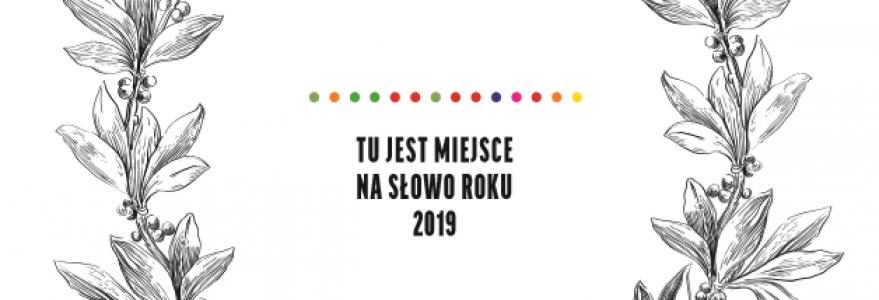
Until 31st December, one can vote for a word or expression which, in their opinion, has great resonance for the year 2019. Słowo Roku 2019 (Word of the Year 2019) will be announced at the beginning of January by the UW linguists who organise the event.
What Polish word has attracted a great deal of interest over the last 12 months? Everyone is invited to either choose a word or expression from the list posted on the website http://sloworoku.uw.edu.pl/ or submit own proposals.
The candidates for the Word of the Year might be nouns, adjectives, verbs, etc. However, organisers will not accept surnames, proper names of people, places and institutions.
The poll is organised for the 9th time. The winner of the last edition is “konstytucja” (constitution).
This year proposals include, e.g. “klimat” (climate), “nauczyciel” (teacher), and “strajk” (strike), “wybory” (elections), “nienawiść (hatered), “hulajnoga” (scooter), and “równość” (equality).
Other countries such as the United Kingdom, Germany, France and the Czech Republic also choose their word of the year. Recently, the editors of “Oxford English Dictionary” have named “climate emergency” as its 2019 Word of the Year. Collins Dictionary, for example, picked “climate strike” as its word.
UW linguists are among a panel of experts who choose the word. The panel includes: Prof. Jerzy Bartmiński (Maria Curie Sklodowska University in Lublin), Prof. Jerzy Bralczyk (the University of Warsaw), Prof. Katarzyna Kłosińska (the University of Warsaw), Prof. Ewa Kołodziejek (the University of Szczecin), Prof. Marek Łaziński (the University of Warsaw), Prof. Andrzej Markowski (the University of Warsaw), Prof. Jan Miodek (the University of Wrocław), Prof. Renata Przybylska (the Jagiellonian University, Cracow) and Prof. Halina Zgółkowa (Adam Mickiewicz University in Poznań).
Vote for the Polish Word of the Year 2019 (Słowo Roku 2019) >>
Source: www.en.uw.edu.pl
4EU+ information meeting
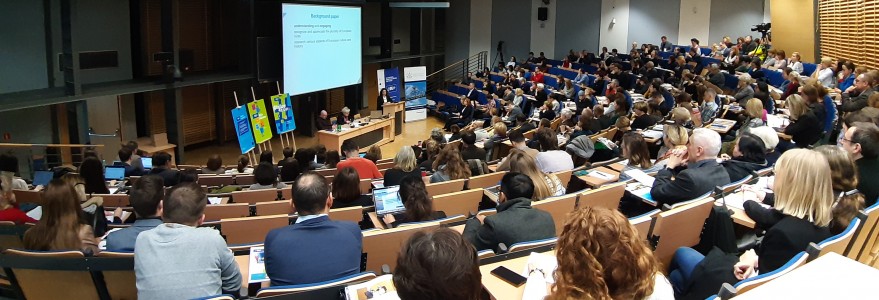
On 5th December, the University of Warsaw organised a 4EU+ information meeting for its entire academic community.
4EU+ is a consortium of six comprehensive, research-intensive, public universities from four regions of Europe to strengthen the European vision of deepened cooperation and mutual enrichment by developing a new quality of cooperation in teaching, education, research and administration, leading to the creation of a truly integrated European University System.
The 4EU+ Alliance, with the University of Warsaw as its member, is among the consortia selected for funding in the first pilot ‘European Universities’ call for proposals, launched as part of the 2019 Erasmus+ programme. The European Commission announced the results in June this year. On 7th-8th November, in Brussels, the European University Initiative was officially launched. More information >>
On 5th December, students, doctoral candidates, researchers and administrative staff participated in the 4EU+ Alliance meeting at the University of Warsaw. The event was an excellent opportunity to discuss educational initiatives, and possibilities for students, doctoral candidates and Staff.
Research-based education
Prof. Maciej Duszczyk, UW Vice-Rector for Research and International Relations, welcomed everyone, presented the 4EU+ mission and vision and spoke about a spectrum of possibilities which UW has as a member of the Alliance.
Educational activities were the main theme of Prof.’s Jolanta Choińska-Mika, UW Vice-Rector for Student Affairs and Quality of Teaching, speech.
4EU+ Flagships Coordinators at UW (Dr. Catherine Suski-Grabowski, Flagship 1; Prof. Agnieszka Świerczewska-Gwiazda, Flagship 3; Dr. Julia Pawłowska, Flagship 4) and Prof. Agata Bareja-Starzyńska, member of Flagship 2 Programme Committee, invited all members of UW community to get involved in research-based projects carried out by the 4EU+ universities within four flagship programmes:
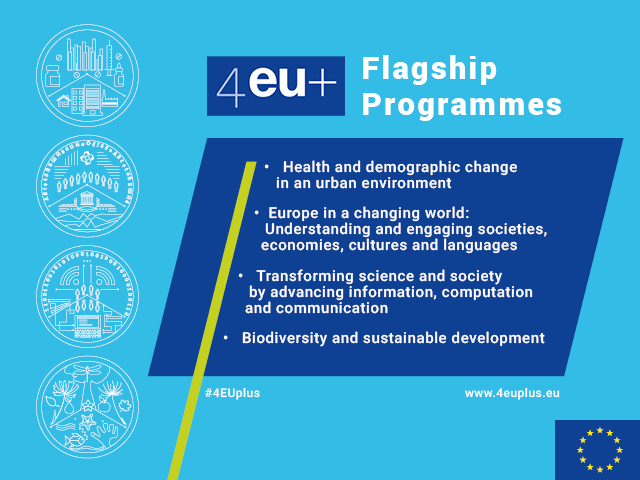
Initiatives for students and doctoral candidates
Student involvement was also a part of the programme. Marta Burzyńska from the UW Student Union, Tymoteusz Ogłaza from UW Erasmus Student Network focused on collaboration among 4EU+ students and plans for the future. One of the events they mentioned was the 4EU+ Student Conference at the University of Copenhagen.
Josef Fontana from Charles University was a special guest who in his presentation encouraged UW students and doctoral candidates to commit themselves on the 4EU+ offered activities and to come up with some own ideas for mutual collaboration.
Funding, mobility and communication
Attendees of the meeting could also find out about how to get funding for their activities in 4EU+. A person responsible for sharing this knowledge was head of Office for International Research and Liaison, Diana Pustuła.
To boost meaningful mobility is one of the 4EU+ Alliance three challenges. Head of the UW International Relations Office, Sylwia Salamon, enumerated mobility possibilities for students, doctoral candidates and staff.
Last but not least element of the programme was a speech of Anna Korzekwa-Józefowicz, UW Spokesperson, and Marta Brelih-Wąsowska from the Office for International Research and Liaison who stressed the importance of communication within the partner universities and promotion of the entire Alliance.
Online Transmission
Source: www.en.uw.edu.pl
Seminar CeNT 6.12.2019
02 grudnia 2019The Centre of New Technologies invites to a seminar by
Anna Sarnowska, M.D., Ph.D
Head of Translative Platform for Regenerative Medicine, Mossakowski Medical Research Centre, Polish Academy of Sciences, Warsaw
Title: Cell therapy in clinical and preclinical research
Date: December 6th, 2019 at 12 p.m.
Venue: Centre of New Technologies, Banacha 2C,
Lecture Hall 0142 (Ground floor)
Host: prof. Marta B. Wiśniewska
Abstract:
In recent years, we have seen the rapid development of regenerative medicine based on the stem cells application. Over the last years, procedures have been intensively developed to enable effective derivation and cultivation of mesenchymal stem cells (MSCs) for future clinical applications. At the same time, numerous studies have confirmed the therapeutic efficacy of MSCs based on their secretion and immunomodulatory effects although there are still only few diseases where MSC application lead to restore normal function. Unfortunately, the rapid commercialization of such treatment is not always supported by basic knowledge and conducted in accordance with the principles of „evidence-based medicine.” To move regenerative medicine into the realms of mainstream medicine, it should be clearly indicated what has been achieved so far in regenerative medicine, explain to patients the possible therapeutic effect of MSC and treat most stem cell applications as experimental therapies. In order to achieve the main goal of stem cell based therapy – replacing damaged cells with new injected cells, basic research concerning MSC isolation, cultivation or preconditioning procedures before transplantation should be conducted.
Our results show significant differences in phenotype, proliferation rate, CFU-F formation and the number of senescent cells between MSC populations obtained with different methods of isolation. Moreover the method of cell isolation may substantially affect their properties, differentiation abilities and presumably the neuroprotective properties. Therefore the efficiency cannot be the main determinant to choose the method of isolation.
Additionally, our experiments showed that the strongest ability for neuroprotection was provided by freshly isolated cells and the first cohort of migrating MSC cells (passage O). Undifferentiated, SRTF expressing MSC, capable to time-locked proliferation, migration and ultimately to neural differentiation are the most effective in various therapeutic transplantation models. To keep the cells in undifferentiated state culture conditions e.g. oxygen concentration are crucial.

